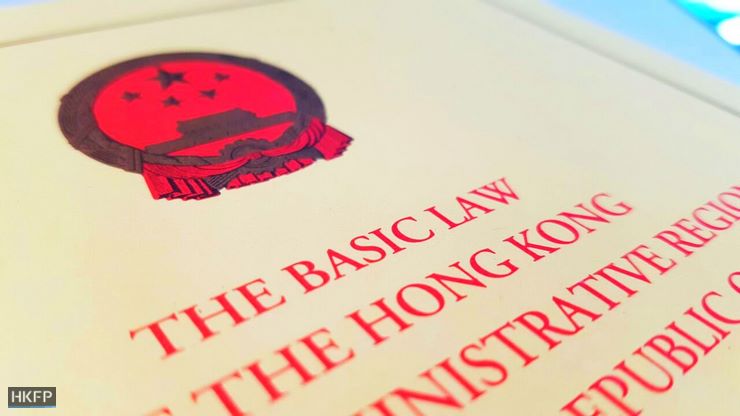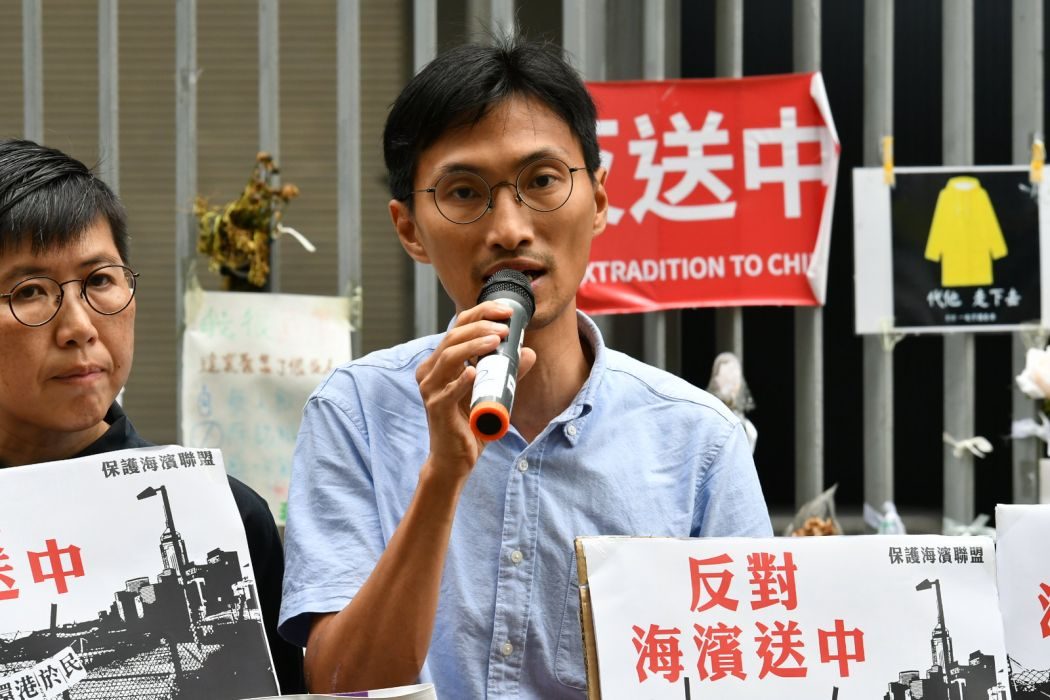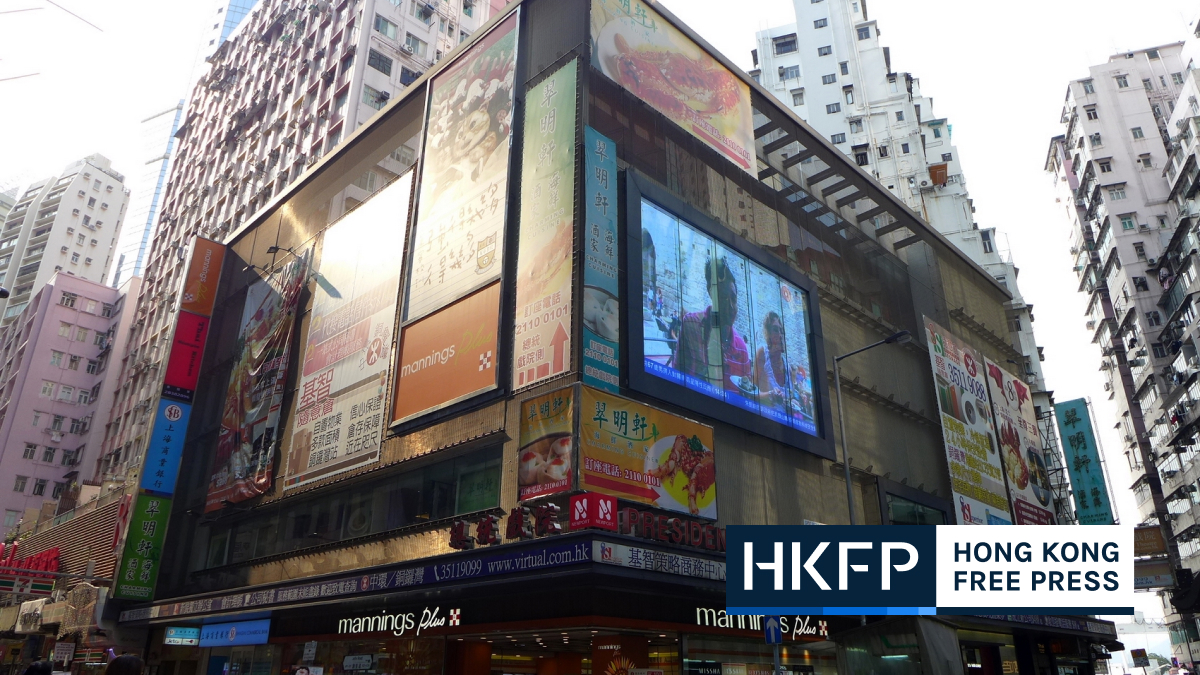Professor Benny Tai Yiu-ting is in the thick of it again. His latest project was a straw poll conducted over the July 11 weekend, and Beijing is furious. Other than that, the exercise was a great success.
It attracted over 600,000 Hong Kongers who voluntarily came out to participate in what was essentially an informal opinion poll designed to gauge their candidate preferences.
More specifically, the aim was to narrow the field of aspiring pro-democracy candidates ahead of the coming Legislative Council election on September 6. Too many enthusiastic candidates chasing too few council seats has become a perennial problem for Hong Kong’s democracy movement.

Far more voters turned out than the organisers expected, and the biggest winners were the younger generation candidates who were at the forefront of last year’s anti-extradition law protests. The turnout and results were similar to last November’s landslide election for Hong Kong’s neighbourhood-level District Councils.
Hongkongers’ spirit of defiance has obviously not yet faded, even if the street demonstrations have. Nor were voters intimidated by the draconian new security law Beijing has just imposed on the city. The new law was promulgated in a rush just before midnight on June 30. If first impressions are anything to go by, the law served as a provocation and turnout was greater than expected because of it.
Two days after the weekend exercise, rolling thunder issued forth from Beijing. Benny Tai was the most prominent among the event’s organizers, and the official blast singled him out for censure.

In its July 14 statement, the central government’s Hong Kong and Macau Affairs Office said the polling exercise was an illegal manipulation of Hong Kong’s electoral process, designed to build momentum for the pro-democracy camp and give its candidates an unfair advantage in the coming Legislative Council election.
The statement also said the poll was an open challenge to both the new national security law and to Hong Kong’s own Basic Law constitution. And if all that wasn’t enough, Benny Tai was standing in as an agent working for foreign forces.
The statement also expressed support for Hong Kong’s Chief Executive Carrie Lam’s condemnation of the polls and for an investigation into the nature of its illegalities. It must not be permitted, declared Beijing according to the Ta Kung Pao on July 15.
Lam had said the straw poll, which was billed as a primary election, may have constituted a subversion of state power, a mainland term newly introduced for Hong Kong use. The new national security law criminalises secession, subversion of state power, terrorism, and colluding with foreign forces.
Setting the scene
Benny Tai is not new to controversy and his efforts to channel the enthusiasm of Hong Kong’s pro-democracy partisans actually began a few elections ago. After his unsuccessful 2014 Occupy Central campaign for universal suffrage elections, he began designing creative plans aimed at trying to discipline Hong Kong’s pro-democracy candidates and those inclined to vote for them.
His greatest success actually came with the District Council elections last November, when democratic candidates swept the field and flipped the entire neighbourhood-level council system. This they did by winning unprecedented majorities on all but one of Hong Kong’s 18 local councils. But the achievement was not his alone.
By then so many in the democracy camp had absorbed Tai’s message that they carried on with his plans for the November election during most of last summer while he was “away.” His plan had called for a unified camp and for pro-democracy candidates to be willing to stand in every constituency so as to give voters a choice, no matter what the prospects for success might be.

The plan also called for only one pro-democracy candidate per constituency, the aim being to curb factional infighting. This has plagued pro-democracy forces since the early 2000’s. It has also been responsible for many election losses to the always disciplined and well-coordinated alliance of pro-Beijing loyalists and pro-establishment conservatives.
Tai’s absence was due to the 16-month prison sentence he began serving in April last year for the disruption caused by his 2014 Occupy Central campaign. He was granted leave to appeal his sentence and released in August. Tai is currently out on bail pending the appeal judgement.
The District Councils election may have been his greatest triumph to date, but it took the mobilising effect of last year’s anti-extradition law protest, with its violent undercurrents, to focus everyone’s attention.
Most of the pro-democracy candidates had joined a coalition that uncritically endorsed the protest movement. The coalition included both younger generation activists and older moderates, novices as well as experienced politicians. All were swept into office by the landslide.

The violence provided an ironic backdrop. Tai had worked hard to keep his 2014 campaign peaceful. He also frequently acknowledges his debt of inspiration to U.S. civil rights campaigner Martin Luther King and the tradition of nonviolent civil disobedience he championed.
Encouraged by last November’s success, spirits revived, and preparations began for the September 6 Legislative Council election. Outsiders and onlookers might wonder what all the fuss is about. Why are Hongkongers so agitated with their constant demands for electoral reform when Hong Kong now has a regular calendar of elections that progress without interruption from one cycle to the next? The answer: because elections come in all different kinds of shapes and sizes.
Benny Tai’s 2014 Occupy Central campaign was about direct “one-person, one-vote“ universal suffrage elections, which for one reason or another have been denied to Hong Kongers since the beginning of time. They still are.

The current electoral arrangements were designed in the 1980s — under a drafting process that was directed by Beijing — for use after Hong Kong’s 1997 transfer from British to Chinese rule. The convoluted formulas may seem archaic, but they are well suited for the purpose intended, namely, to bolster the prospects of pro-government candidates and prevent “populist” takeovers.
As a result, the design makes it almost impossible for their democratic opponents to win a majority in Hong Kong’s 70- seat Legislative Council — although they invariably win a majority of the votes cast. But electoral designs are not the only reason for democrats’ disappointments
So frustrated have activists become in their struggle with Beijing over this issue of electoral reform, that they began creating their own adversarial system for use among themselves. They vie with one another and argue endlessly about the best ways to achieve the promise of “genuine” autonomy and “real” elections, even as these goals have continued to recede mirage-like with each passing year.

Beijing began making such promises in the 1980s and formalised them in a Basic Law “mini-constitution“ for use after 1997. So, they are not the figments of subversive imaginations as officials have taken to claiming.
Benny Tai, with all his creative plans, has been trying to minimize the damaging impact of democratic candidates’ persistent attempts to build their own small power bases at the expense of other like-minded campaigners, all competing within the same pool of voters.
The tedious task of candidate coordination actually began in the early 2000‘s, with a group called Power for Democracy. Its efforts have included informal pre-election preference polling, which failed spectacularly in a Kowloon West special election two years ago. But overall, the work begun by now retired academic Joseph Cheng and Power for Democracy has been a mixed success.
The unofficial “primary election”
The online exercise democrats organised for the July 11 weekend was the most ambitious of these efforts to date. It also proclaimed the most ambitious goal: “35+”, meaning a democratic Legislative Council majority for the first-time ever. Bear in mind, it was a goal the current council had been specifically designed by Beijing to prevent.

The exercise was self-administered, locally crowdfunded, and largely electronic, with former University of Hong Kong pollster Robert Chung back in his familiar role as online project coordinator and software designer.
But the online voting, with paper ballots for old-timers, was administered and verified by volunteers at some 250 polling “service stations” set up at volunteer sites all around town.
Voters had to present themselves in person at the polling sites, show some proof of who they were, and their mailing address in Hong Kong. Only then were voters given access to register their preferences on their own mobile devices.
Just over 600,000 votes were cast, of which only 21,000 were on paper ballots. Lead organizers were Power for Democracy in its old familiar candidate coordination role plus activist-politician Au Nok-hin, and Benny Tai.

In order for their names to be included on the “ballots” — one for each of Hong Kong’s five Legislative Council election districts — aspiring candidates had to agree to abide by the results of the poll. But this was only a word-of-honour agreement. There is no enforcement mechanism that will compel them to do so.
The results aimed to determine the number of pro-democracy candidates who would contest the formal election on September 6. So the number of primary poll “winners” was determined first by the total number of Legislative Council seats to be filled in each of Hong Kong’s five Legislative Council constituencies: six seats for Hong Kong Island; six in Kowloon West; five in Kowloon East; and nine each for New Territories East and West
But the second calculation that went into determining the winners was the total number of seats to be filled in relation to the number that pro-democracy candidates might reasonably be expected to win — given past voting patterns in each of the five constituencies.

In Kowloon West, for example, democrats can hope to win four of the six seats, so the primary poll winners in that constituency were cut at the top-scoring four candidates.
A problem immediately arose when one candidate was ahead in the fourth slot after the electronic votes were counted but was squeezed out once the paper ballots were included as well. Initially, he said he would contest anyway, in violation of the agreement, but later changed his mind and reportedly agreed to accept the final tally.
Winners and losers
This was a younger generation poll due, if nothing else, to the heavy reliance on electronic voting. Even those voting the old-fashioned way had to rely on someone with an electronic device to tell them where to go, because the addresses of the few polling stations with paper ballots were only listed online. But that was only one reason.
Most of the winners were younger generation candidates who had distinguished themselves in last year’s youth-driven protests or joined the new “Hong Kong First” localist trend that has been developing roughly for the past decade.
Some seeming exceptions — like incumbent legislators Claudia Mo in Kowloon West and Eddie Chu in New Territories West — actually were not. Both had merged easily with the new localist sentiments.

On Hong Kong Island, the race was originally Nathan Law’s to lose. His Plan B replacement, Tiffany Yuen, won instead. He had been elected Hong Kong’s youngest legislator ever in 2016 but was disqualified and lost his seat due to the government’s selective prosecutions during the post-election oath-taking saga.
Law had intended to try again but decided he had no future here under the new national security regime. He left Hong Kong for London on the eve of the new law’s promulgation. Both Law and Yuen had been members of Demosisto, the small political party founded by Joshua Wong when they were all student activists.
The group has just disbanded, also on the eve of the new law’s promulgation. But star performer Joshua Wong has many battles yet to join. He says he is not going anywhere and intends to remain in Hong Kong whatever the consequences.
His next battle is soon to come because he emerged as the number one winner in Kowloon East. He is also one of 16 winners who have signed a statement declaring their opposition to the new security law.

This is no easy statement. Article 6 of the new law says all election candidates must take an oath swearing to uphold Hong Kong’s Basic Law. The new security law was inserted into the Basic Law by promulgation on July 30. To oppose the new security law is therefore to oppose the Basic Law and sure grounds for disqualification.
Thus, two major hurdles must be confronted before September 6. One is the spectre of disqualification hanging over the entire straw poll exercise and all its candidates, albeit some more than others.
The second is the response of Hong Kong voters themselves. Will they come out to vote for the replacement Plan B candidates, as enthusiastically as they would have done for the first choices?
The formal nomination period is now underway, running from July 18 to 31. Paperwork includes the pledge, to be signed or not. It was not a prerequisite for candidate validation in 2016, but with all that has happened since, it probably will be now.
Civil servants from Hong Kong’s Home Affairs Department have been temporarily designated “returning officers,” and it is for them to decide whether aspiring candidates should be disqualified. Presumably, the returning officers do not decide on their own, but the procedures and criteria are not for the public to know.

Joshua Wong was not allowed to contest last November’s election due to Demosisto’s self-determination advocacy, although that fact was not enough to disqualify anyone else in that election.
It was, however, used to disqualify Eddie Chu and keep him from participating in a rural village poll early last year. Wong could now be disqualified for any number of other reasons listed in the new security law, so it’s difficult to see how his candidacy can go forward.
The second hurdle will be the voters themselves and how they respond to second–tier candidates — or even the first-tier candidates, for that matter. The electorate in September will be wholly restored, representing both old and young.
Here, as elsewhere, elderly voters tend to be more reliable turnouts on Election Day — although last November’s election saw a major surge in the youth vote. Older voters also tend to be more moderate in their candidate preferences — although that was not evident last November.
But the year before that, in 2018, it was a different story in Kowloon West. The youth favourite then was Teacher Lau Siu-lai, disqualified in the muddle created by the oath-taking saga. Her backup candidate, Lee Cheuk-yan, should have generated almost as much enthusiasm.

Lee Cheuk-yan is a veteran democrat, founder of the Labour Party, and long-standing promoter of the Victoria Park candlelight vigils commemorating victims of the Tiananmen massacre. But he lost the 2018 Kowloon West special election to a pro-establishment candidate, and the lacklustre youth vote was judged as one of the reasons.
Teacher Lau’s popularity was non-transferable, even to as respected a figure as Lee Cheuk-yan. One reason perhaps: the youth vote is now trending in the localist “Hong Kong First” direction and the June 4 vigil is a pan-democrat endeavour.
It’s ideal is a democratic China and the downfall of one-party rule. Localists say that may have seemed a possibility in 1989, but it is now too distant a dream. China did not go the way of the Soviet Union. The youth’s cause is here and now.
Other veterans who missed the cut or hovered in the margins on the July 11 weekend were: the Democratic Party’s current chairman, Wu Chi-wai in Kowloon East; Neo-Democrats’ Gary Fan in New Territories East; and the Democratic Party’s Helena Wong in Kowloon West. Will enough of the disqualified first-choice winners’ votes be transferable to any of them on September 6? Maybe not.
All things considered, Beijing officials and local pro-establishment politicians need not fret too much about the unfair advantage Benny Tai’s latest venture has created for democrats. There is still ample space for all kinds of strife as aspiring candidates jockey for positions on candidate lists that will no doubt be further downsized once the “returning officers” complete their tasks.
Correction 28.07.20: A previous version of this article incorrectly stated that voters had to present paperwork from the electoral authorities to vote in the pro-democracy primaries. In fact, only ID and proof of address was required.
Support HKFP | Policies & Ethics | Error/typo? | Contact Us | Newsletter | Transparency & Annual Report | Apps
Help safeguard press freedom & keep HKFP free for all readers by supporting our team















